Let’s reject—if only for a moment—the argument that Marvel makes the fun, light superhero movies while DC makes the dark and broody stuff.
It’s not that it’s untrue. Even at their most serious, the MCU movies always have a sense of play about them, whereas the DC films seem to aim for a higher cinematic and emotional standard. Marvel’s the hyperactive middle schooler that has the barn for the night and wants to put on a show. DC is the thoughtful high schooler that’s hungry to prove something while still satisfying the same creative impulses as that middle schooler.
However, I find the demarcation between the two to be a little too precious. It implies that the Marvel movies can’t ever be serious or thoughtful when the best movie to come out of that studio—The Winter Soldier – builds a phenomenal action epic on top of some very real concerns we have about the world in which we live. It also doesn’t give DC a lot of credit to write off their movies as overly serious and full of grit, when one of the best parts of The Dark Knight was Batman dismissing a group of inspired vigilantes because “I’M NOT WEARING HOCKEY PADS.” By painting with such a broad brush, it encourages us to overlook certain aspects of the films themselves, which is how Man of Steel gets a reputation as the dark, angsty Superman movie, even though calling out Man of Steel for being dark and angsty misses the point of the movie entirely.
Man of Steel isn’t edgy because that’s the thing Warner and DC do; Man of Steel goes to dark places to reveal where the resilient optimism of its lead comes from. In fact, even in an age where origin stories get retold every five years or so, one could argue that Superman’s origin—the most well-known origin of any comic book superhero—was ironically the most important one to retell and recontextualize for this era.
Let’s jump back to the Christopher Reeve Superman for a moment, the one most of us hold up as the definitive interpretation of that character. That was released in 1978, which puts that Clark Kent’s formative years around the 1950s and ’60s in small-town Kansas. I don’t want to ignore the political turmoil of that era, particularly vis a vis civil rights and Vietnam. But it’s not impossible to assume that given the larger world of the time and the relative isolation of the Kent farm, Clark would emerge relatively untouched by a first-hand knowledge of humanity’s darkness. He knows more about the best in people, and so he believes in that in the face of all else.
For a 2013 take on Superman, however, you’re talking about a Clark Kent that grew up in the late ’80s and the ’90s. I’ll let screenwriter David Goyer speak for himself here:
So Chris [Nolan, executive producer] and I very early on started saying, okay, if this movie is going to come out in 2013, that means that he was born in the ’80s. He would have been in high school in the ’90s, so we started talking about his switch of reference. Soundgarden. Nirvana. And that it wouldn’t be Norman Rockwell, it would have been a different world…that was instructive early on, because it forced us to look at everything in a different prism.
MTV had exploded in the ’80s. That helped grunge go mainstream in both the hangover of the hyper-capitalist Reagan years, and the hunger of a generation who felt deeply misunderstood. No matter where we lived, the shittiness of the world felt a little more ubiquitous. For Superman to remain relevant, we had to recognize these scars of the American psyche on him. That doesn’t mean he can’t aspire to moral greatness, but it does mean he runs a lot hotter than the guy that came of age in 1950s rural Kansas.
So where in the film can we see this? It’s not something that’s explicitly spelled out, but we can see how it works in metaphor through Jonathan Kent. Jonathan, as played by Kevin Costner, is a fascinating character in that he’s both a beloved father figure as well as an oppressive authority figure. The duality is shown through Jonathan’s legendary first scene with Clark: after he uses his talents to pull a sinking bus full of his classmates out of a river, the two of them discuss the inherent risks of exposing his abilities to the world.
“So what,” asks Clark, “I should have just let them die?”
Jonathan takes a long beat, and admits, “Maybe.”
It’s not that Jonathan is cold or ruthless. Even though the scene in which Jonathan reveals to Clark his extraterrestrial origins has yet to take place, we can see through the body language that there’s a powerful bond between Jonathan and Clark. Through that bond, Jonathan is compelled to exert his authority over Clark to protect him from a world that would exploit him before he was prepared, and Clark is compelled to listen to a father he loves. Even as his own morality and sense of justice pulls at him. Even as bullies bust on him and dare him to fight back. Even as that same father is about to be sucked up by a twister.
Compare to Pa Kent in the Richard Donner film, who’s felled by a heart attack; tragic, but clean and natural. Reeves’ Clark mourns that there was nothing he could do about it, even with his incredible power, but he moves on. Here, Clark is forced to watch a loved one die because an authority figure forbade him to act. Never mind that they were one and the same; the theft of one’s control over life through authority figures is what this Superman grew up with, and he had plenty of theoretical access to the world around him to know he wasn’t alone. Kurt Cobain didn’t observe that “teenage angst has paid off well” because he felt any control over how his music was being exploited by record executives. And Chris Cornell sure as shit didn’t remark “dreams have never made my bed”—in the first of only two licensed songs to appear on the soundtrack, no less—because he thought life was as simple as “good always triumphs over evil.”
Is this a new theme to Superman on film? Of course not. In the 1978 film, Superman tossed out Jor-El’s warning against interference in the course of human history in order to save Lois Lane from the San Andreas Fault. Up to that point, though, he behaves like the Big Blue Boy Scout because he never had a reason to behave any differently. The first responsibility of any story is to tell its truth. The truth of this story is that a modern-day Superman would have grown up in a different world than the Superman of 1978. The challenge of Man of Steel, then, is how does Superman stay Superman in a more cynical time with a more complicated upbringing?
Bryan Singer’s Superman Returns (much as I admittedly liked the film, despite cooling considerably on it) simply said “Because he’s Superman” and dropped the mic there, thinking that was a satisfying answer. To be fair, Man of Steel doesn’t go a hell of a lot further, but a big part of it is that some things just don’t change. Clark was still raised by good people in a small town that was convinced to protect his identity, despite the theoretically massive personal gain at stake for outing his existence. So he still grew up with the idea that people are worth protecting, and he’s validated as he travels the world looking for a purpose. He can walk through the fire of a burning oil rig and rip the doors off its hinges to free a group of trapped workers, but he can’t compel the Coast Guard to make one last pass for survivors and land on an unstable platform knowing full well that it’s gonna blow at any minute.
The scars are still there, though. He’ll step between a truck stop bully and the waitress he’s harassing, and he’ll take his shit in her place and not fight back. But when nobody’s looking, he’ll thoroughly wreck that bully’s rig. It’s justice, or at least as close as he can offer, rendered over a man abusing his authoritative presence because no one else would. Upon review, it’s around this point that you should see the ground being laid for something deeper than a straight superhero origin tale. Man of Steel is an alien invasion blockbuster wrapped around a character study about a man who is pulled between his own desires and the desires of the authority figures who hold sway over his life.
That’s what the General Zod of Man of Steel represents at heart: oppressive authority cranked to 11. Not even a man who earned the right to that authority, but who took it by force, co-opting Jor-El’s desire for the Kryptonian race to continue off-world and holding it over Clark’s head. Like Jonathan and the bus full of kids near the start of the film, Zod frames it as The Hard Call; the genocide of a species to ensure the survival of their own. Jor-El wants that survival, true, but he wants Kal to do it on his own terms—to learn what it means to be human before building a bridge between his race and theirs.
For me, one of the most rousing sequences of the movie may be one of the smaller ones: Clark’s rescue of Lois Lane from the damaged escape pod, because it follows Russell Crowe’s haunting, perfect delivery of “You can save her, Kal. You can save all of them.” In that moment, Jor-El has set Kal free of any obligations he might have shouldered so that he could do what needs to be done. For the first time in his life, Clark is given permission to truly be his own man, and he literally launches himself into it in order to save someone he loves.
If Clark ever had any respect for Zod, it dissipates in that moment. All he can see afterwards is a tyrant who wants to bleach his home of undesirables and claim it for his own. Without that respect, all he has is thirty-odd years worth of resentment for the same kind of authority that showed concern (rather than admiration) over saving a bus full of his classmates, and forced him to watch his adoptive father die for the greater good. And there’s no way to uncork all that in a controlled release, especially when the man you’re fighting is just as strong as you.
But once that personification of authority is removed—that is, once Clark is forced to snap Zod’s neck—then all he’s left with is the noble intent behind Jonathan Kent’s authority: to give him something of a normal childhood. To protect him from the world. To save his race. And as that comes flooding back in the immediate aftermath of the neck snap, so does the realization of just how thoroughly he’s failed his two fathers. He gave into the temptation to fight a bully, and he destroyed half of Metropolis—or half of whatever was left standing due to the World Engine—and killed off any hope of a Kryptonian future as a result.
Thank God Lois Lane is there. A mere plucky love interest in every other incarnation of Superman on film (and in many of the comics), the changes made to her character here not only make her indispensable to Clark’s development, but also makes Clark indispensable to her own. With everything happening in the movie, there’s only room for a precious few scenes to sell the romance between these two, and Cavill, Amy Adams, Zack Snyder, and David Goyer make them count.
When we meet Lois, she’s a shark; if she senses a story that needs to be told, there isn’t a court order or editor in the world who will stop her from telling it. Her natural curiosity toward the figure who cauterizes her wound spins into natural obsession with writing an exposé on the humanoid alien that walks among us. It leads her through a trail of extra-normal feats, taking her all the way back to Smallville and reuniting her with Clark. His basic decency—his humanity, really—gets to her, impresses her, and this shark drops the story and willingly eats a three week suspension for causing so much trouble over nothing.
It’s not that he changes her, per se. Lois Lane’s ingenuity and brass balls are on full display during the destruction of Metropolis. It’s just that her obsession gave way to respect, which became admiration, which became love. For Clark, it was roughly the same thing, except the respect was always there: for all his concern over Lois’ injury when they first met in the spaceship, he didn’t seem at all pissed that she showed herself in to begin with.
Not only was Lois able to find him back at Smallville, she was willing to listen to him, too. She heard his story, and chose to respect his privacy despite all the work she did to unravel it. For a man still grappling with his father’s concerns about whether or not the world could handle knowing that he exists, that’s a big deal.
Lois is a constant for Clark, a comforting presence during a horrific, uncertain time in his life, and she could only be that way because of everything that Clark represented to Lois. After Clark snaps Zod’s neck, after he screams out in the anguish of his Pyrrhic victory, Lois is there to hold him while he, still on his knees, weeps into her. And even though they shared a passionate kiss after the destruction of the World Engine, this feels like the climactic moment of their relationship in the film, because the image is emblematic of what this movie is trying to say about Superman.
In 1978, Superman inspired us because he bent the rules of time and space to look out for one person, in an age where we began to realize just how many of us were only looking out for number one. 35 years later, worn down by the cynicism of those who seemingly dictate the course of our lives, we find that Superman inspires us because we somehow inspire him.
Chuck Winters is a film school graduate who never learned how to bitterly hate half of everything he watches. He lives in noted cultural hotspot Suburban Long Island, where he is working on his first novel.

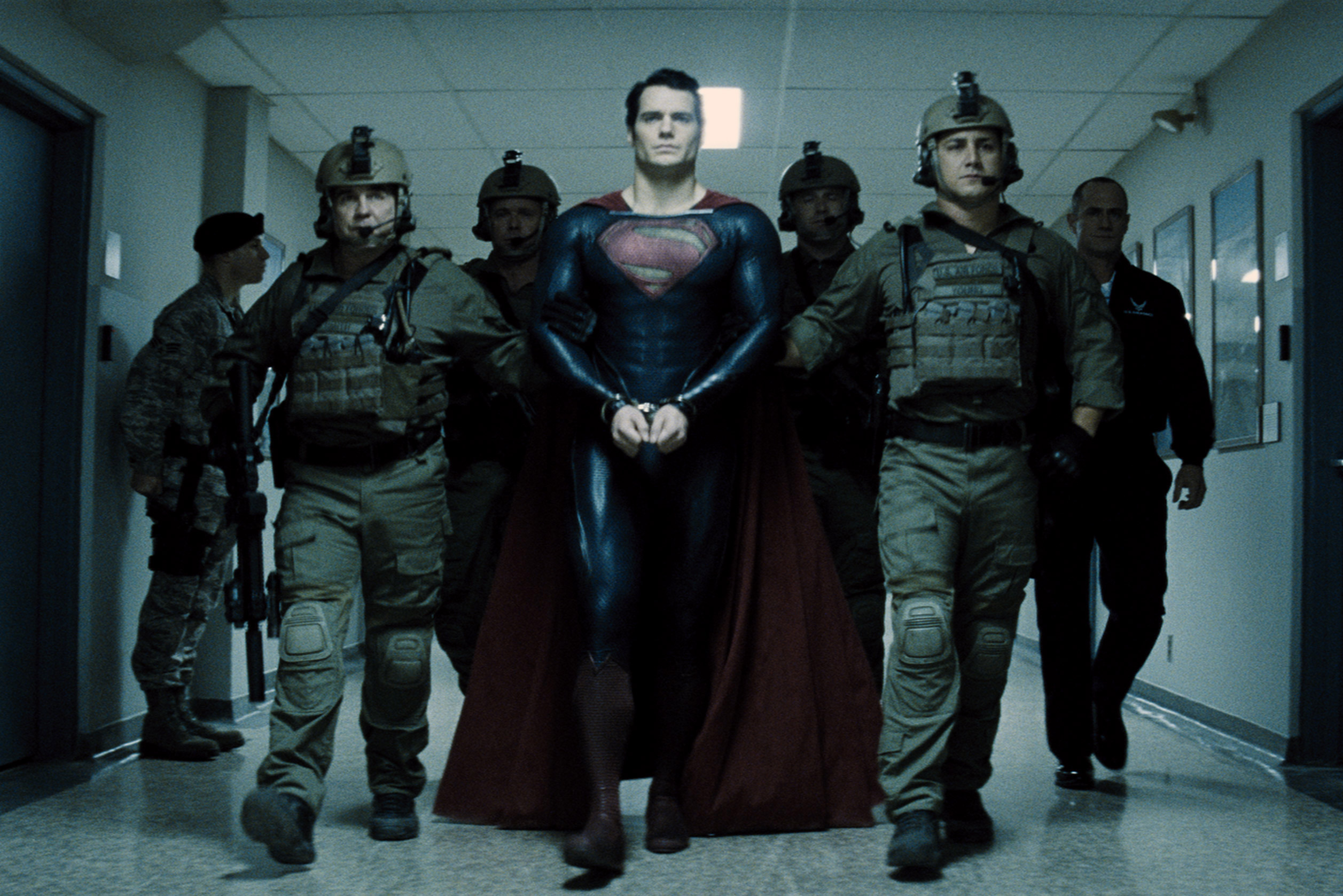
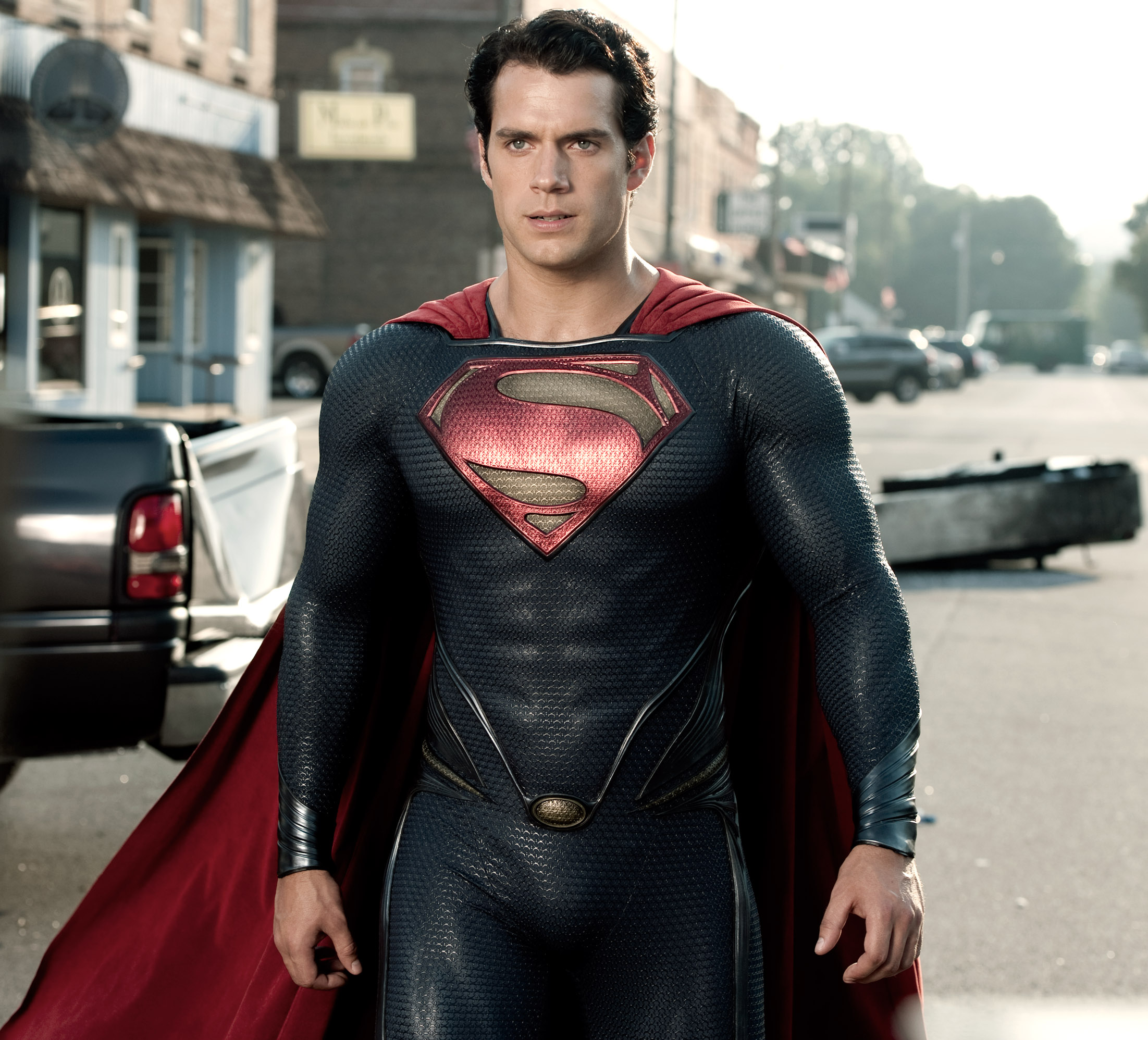
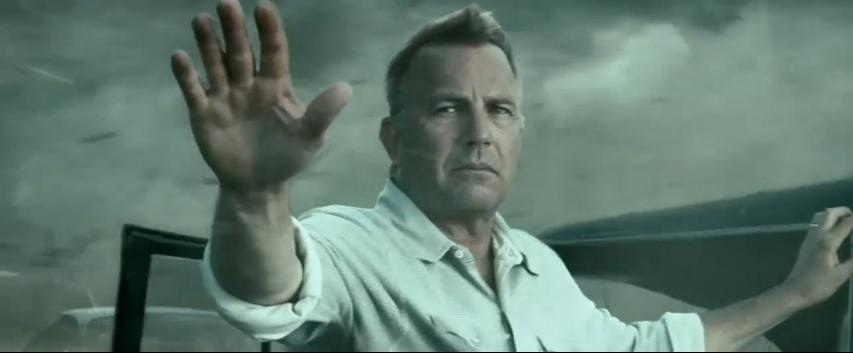
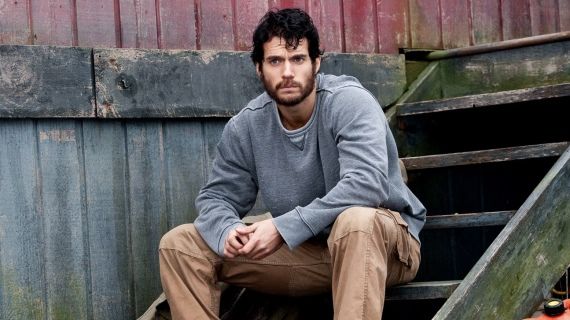
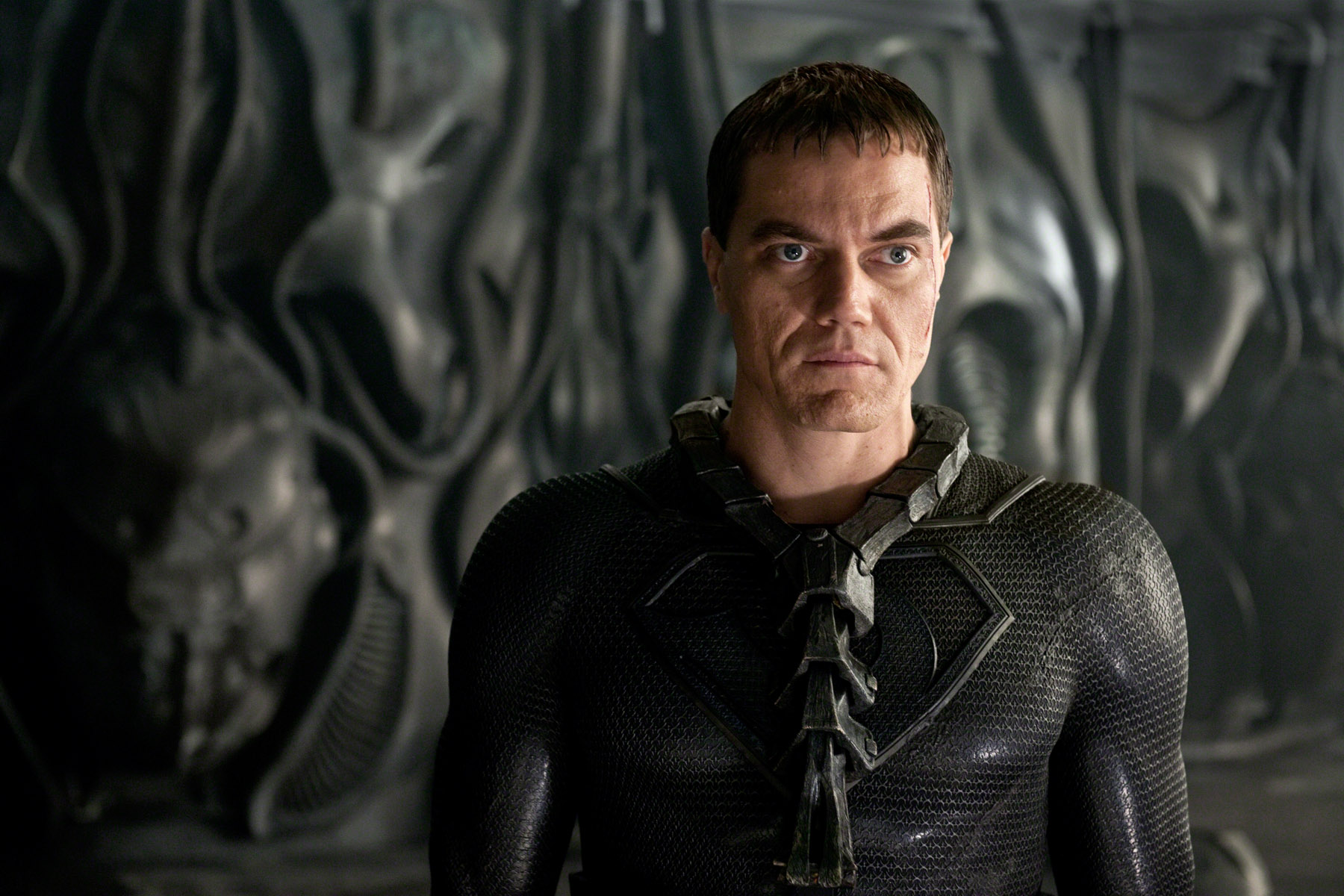
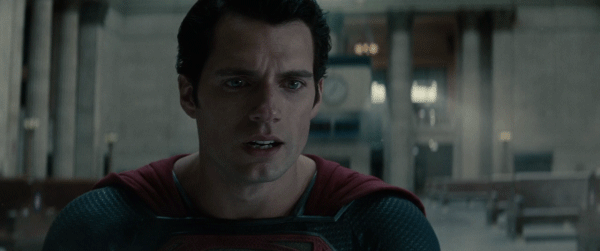
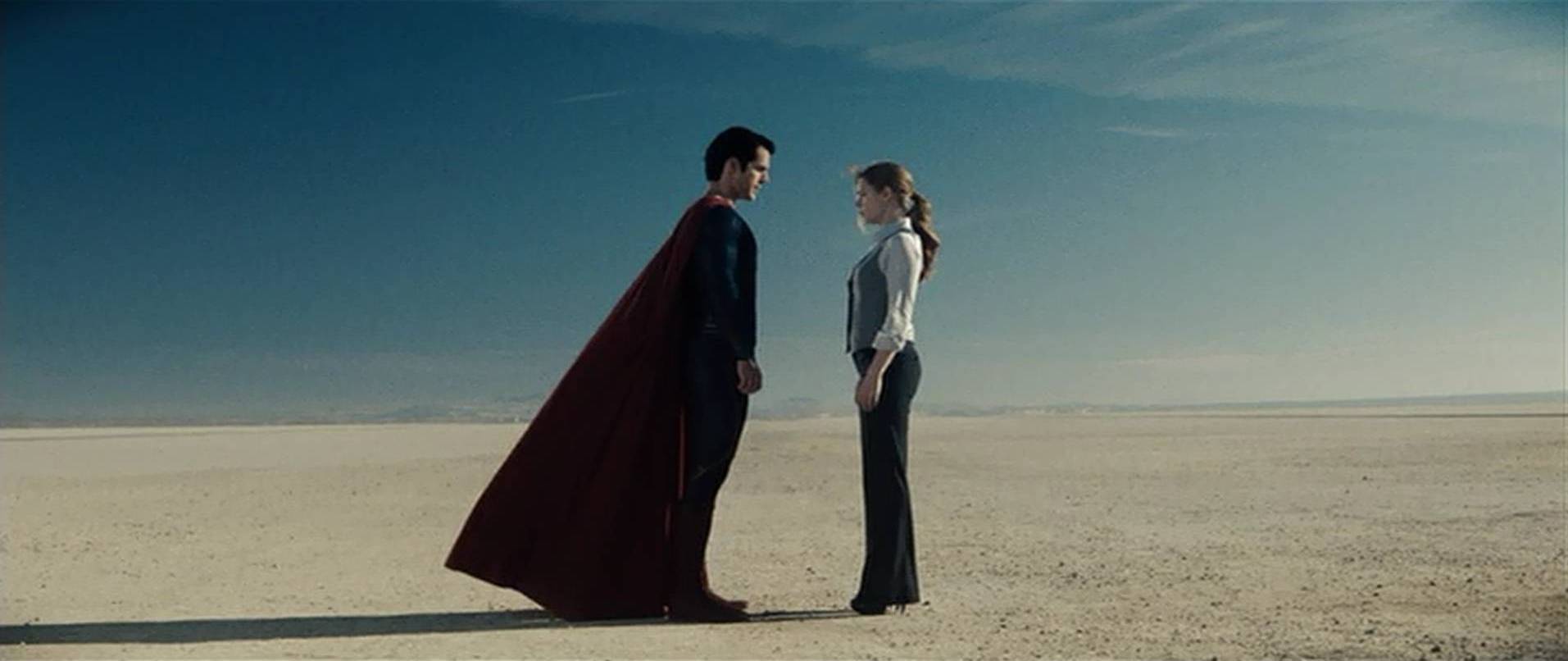

The only thing I disagree with here is that Lois was a “mere plucky love interest” on film prior to his. No, sir… She was not. In the 70’s, she was one of the first women shown to have her own apartment and be living on her own. She was a woman with a job and the feminist revolution of the 70’s was evident in her portrayal. She was both a serious career woman and a sexual woman who went after what she wanted whether it be a story or taking Superman to bed. She was the type of complex woman—both hard and soft—that was rarely allowed on screen. She’s an incredibly important figure that meant a great deal to lots of little girls who grew up dreaming of being a journalist because they saw her on the screen. You shouldn’t diminish how much she meant to all those girls for all those years. Like Superman, she’s been the victim of bad comics by bad writers but her overall importance has not diminished. I agree that she was fantastic in Man of Steel and I loved that the first person to literally reach out a hand to Clark Kent was this mortal woman. It’s as it should be. She is and always has been the first person to show the rest of the world that “needn’t be afraid. He won’t harm them.”